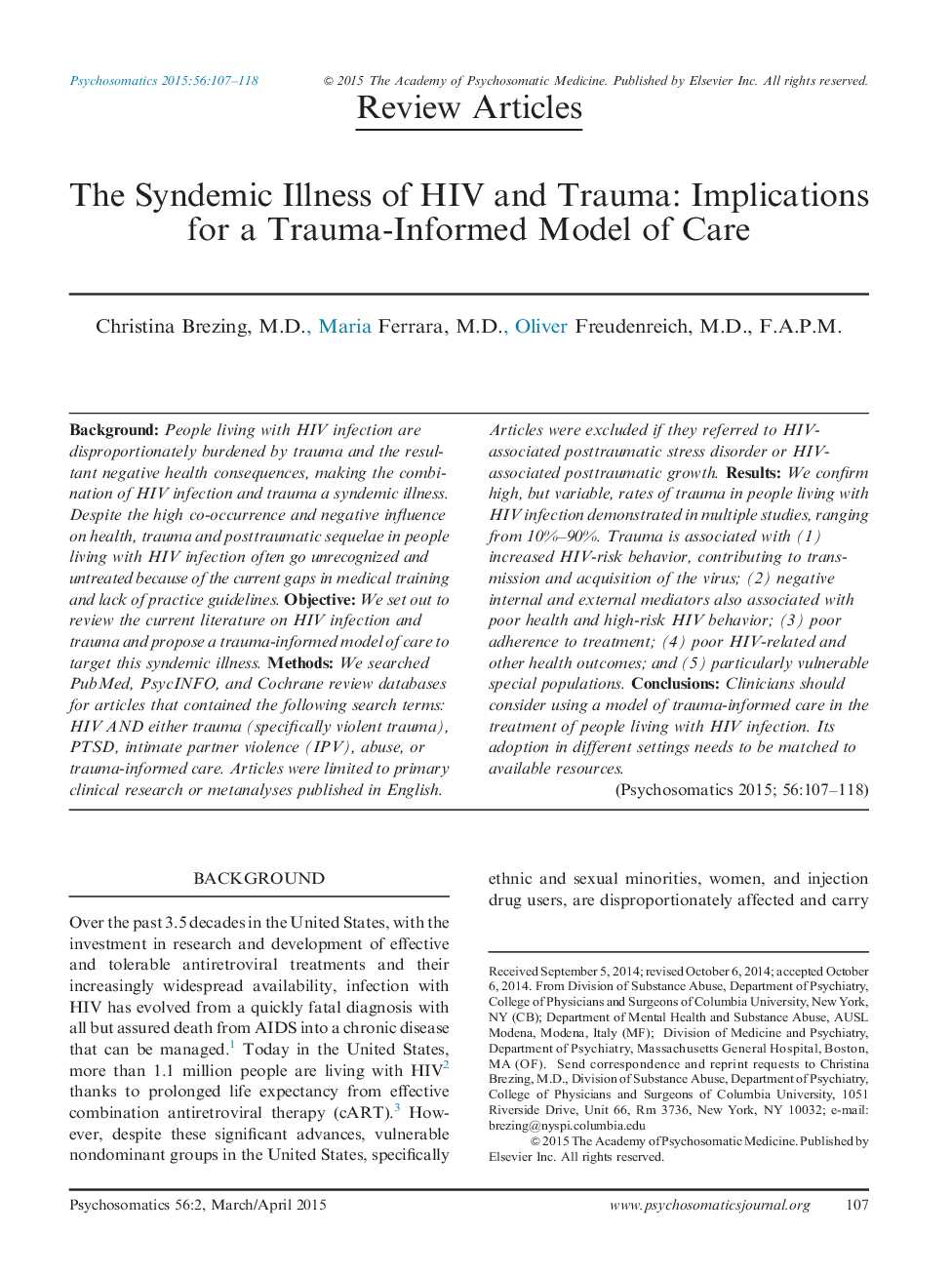| Article ID | Journal | Published Year | Pages | File Type |
|---|---|---|---|---|
| 337790 | Psychosomatics | 2015 | 12 Pages |
BackgroundPeople living with HIV infection are disproportionately burdened by trauma and the resultant negative health consequences, making the combination of HIV infection and trauma a syndemic illness. Despite the high co-occurrence and negative influence on health, trauma and posttraumatic sequelae in people living with HIV infection often go unrecognized and untreated because of the current gaps in medical training and lack of practice guidelines.ObjectiveWe set out to review the current literature on HIV infection and trauma and propose a trauma-informed model of care to target this syndemic illness.MethodsWe searched PubMed, PsycINFO, and Cochrane review databases for articles that contained the following search terms: HIV AND either trauma (specifically violent trauma), PTSD, intimate partner violence (IPV), abuse, or trauma-informed care. Articles were limited to primary clinical research or metanalyses published in English. Articles were excluded if they referred to HIV-associated posttraumatic stress disorder or HIV-associated posttraumatic growth.ResultsWe confirm high, but variable, rates of trauma in people living with HIV infection demonstrated in multiple studies, ranging from 10%–90%. Trauma is associated with (1) increased HIV-risk behavior, contributing to transmission and acquisition of the virus; (2) negative internal and external mediators also associated with poor health and high-risk HIV behavior; (3) poor adherence to treatment; (4) poor HIV-related and other health outcomes; and (5) particularly vulnerable special populations.ConclusionsClinicians should consider using a model of trauma-informed care in the treatment of people living with HIV infection. Its adoption in different settings needs to be matched to available resources.
